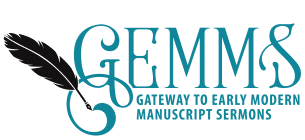Catherine Evans
ODNB (Article: 3237)
Born in Pontefract, Yorkshire, the eldest of Peter Bramhall's six children. Precise date of birth unknown, but he was baptized on 18 November 1594. He attended grammar school in Pontefract then went to Sidney Sussex College, Cambridge, graduating BA in 1612. He was ordained in York Minister on 24 December 1615. He began as an assistant curate at St Martin's Micklegate in York in 1617, and within a year also gained the living of South Kilvington. North Yorkshire. He married Ellen Collingwood on 10 November 1618. She was the widow of a clergyman and had a substantial library. Over the next decade he gained many positions (e.g. prebendary of Ripon, treasurer of Christ Church, Dublin becoming known as an able disputant and preacher after an unlicensed public disputation with a Jesuit and a Catholic priest. In 1633 he went to Ireland with Thomas Wentworth and was made archdeacon of Meath. He was a royal commissioner, working to recover church income. In 1634 he became bishop of Derry and when the Irish parliament met that year he passed acts to preserve church property. He attempted to get the English canons adopted in Ireland. However, this led to conflict, and in the end distinct canons were passed, which Bramhall helped to compile. When Wentworth was impeached by the House of Commons, Ulster Presbyterians demanded that their exiled pastors were reinstated. Bramhall was impeached as a participant in treason and was imprisoned. He wrote to the king and he was liberated without acquittal. In 1642 he returned to England, staying in Yorkshire, supporting the royalist cause, until the battle of Marston Moor in 1644. He then left for Europe and spent several years in Paris, Brussels and Antwerp. While in exile he wrote several influential responses to attacks on the Anglican church from Puritans, Catholics and Hobbes alike. After the restoration, he returned to Ireland, becoming Archbishop of Armagh in 1661. He was responsible for ensuring that the Acts of Religious Conformity were prosecuted. He became chosen speaker of the Irish House of Lords, and old charges against him were removed from the records. Bramhall suffered a series of strokes, the fatal one coming while he was defending his rights in a court against Sir Audley Mervyn on 23 June 1663. He died two days later. He had four children.
